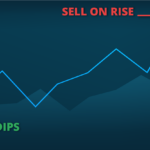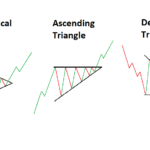Interesting fact – Stockbrokers existed before stock exchanges.
Before that, though, archaeology tells us that the first-ever bond was issued in 2400 BC as a stone tablet issued in Mesopotamia – an agreement between 2 individuals. In the 11th Century, we had the first known case of trading agricultural debts in France. In the 12th Century, Venice was attributed the distinction of issuing the first government bonds to fund wars.
Brokers appeared soon thereafter to monitor and facilitate this trade, and by 1602, when the Dutch East India Company issued its first publicly traded shares, the infrastructure existed to exchange them at a centralised location – the Amsterdam Bourse.

In England, which preceded Holland in issuing stocks, the idea of trading these pieces of paper, which offered a share in the profits of sending trading vessels to the Far East in returnThe benefit one receives on an investment. for financing said trips, soon caught on. And towards the latter half of the 1600s brokers officiated in the various coffee shops (No, Starbucks did not invent the concept).
One coffee shop owner, Jonathan Mills, then had the idea of posting the running prices of stocks and commodities, earning Jonathan’s Coffee Shop the distinction of being the forebearer of the London Stock Exchange. A building constructed in 1773 with the pooled resources of the attending brokers. Originally referred to as ‘New Jonathan’s’, the LSE was formally founded in 1801, formulating its regulations and membership requirements – a system then exported around the world.
Thus was born the idea of an exchange being a limited ‘members-only’ club.
One cannot immediately access ‘the exchange’, since it only exists as a formal meeting place of sorts between brokers and brokerage firms, the latter which soon regulated and quoted both buy and sell rates of a securityA documented and tradeable asset -mainly stocks and bonds, but also documented derivatives., thus becoming the forebearers of what we today refer to as ‘marketA location or entity where people and entities can negotiate and trade assets of value. makers’.
What is a Stockbroker – What does a Stockbroker Do?
As mentioned before, a stockbroker is a go-between who arranges the exchange of shares between buyers and sellers. That definition expands the moment we refer to ‘brokers’ who also deal in commodities, derivativeA contract to trade an underlying asset (or a basket thereof) in the future. Examples of derivatives... contracts and even foreign currencies.
Like an agent, a stockbroker works on behalf of his client, buying and selling stocks upon his/her orders and acting in his/her best interests. Traditionally, this would be done on the ‘trading floor’ of an exchange; nowadays, sales and purchases are usually executed through electronic networks. Stockbrokers can work independently or for large brokerage firms, which – themselves – often serve as market makers, i.e. retaining inventories of specific assets and selling them.
This becomes most marked in the case of initial issuances of stocks and bonds, which – except in the case of some government bonds that are issued directly to the public – are issued through underwriters. These are large investmentAn asset (usually money or work) provided to another in expectation of receiving a cash return or be... firms, investment banks or prime brokerages that set an optimal price on the assetA stock, commodity, currency, index or any other entity one may trade or invest in., then purchase the entire issuance for sale to their clients.
Brokers usually operate on a commission, fee or mark-up basis – earning their income on a trade-by-trade basis.
What are the Qualifications of a Stockbroker?

The essential qualities of a successful stockbroker include an understanding and ‘feel’ for financial markets and the ability to analyse both a portfolio and an asset. Formal training, though not a requirement, is an excellent tool, especially in business, economics, accounting, statistics and quantitative analysis.
Because financial markets are result-oriented, a formal degree is less of a requirement. As a result, many brokers and even analysts have been delving into the more serious online academies, such as Coursera, which is associated with some of the top universities in the world, and taking those courses that best suite them.
Once trained, a stockbroker must obtain a license. In the UK, for example, stockbroking is regulated by the Financial Conduct Authority, which – indeed – regulates all financial activities in the land. The LSE’s original body for investment professionals is CISI – the Chartered Institute for Securities and Investments. It offers it’s Level 4 Diploma in Investment Advice and Level 7 Diploma in Wealth Management. The Chartered Financial Analyst Society is another body that provides its Certificate for Environmental, Social & Governance (ESG) Investing. Although CISI is the largest organisation by far, the CFA is a member of a larger global network.
In the US, things are a bit more complicated, FINRA (The Financial Industry Regulated Authority) only enabling potential members to take its exam if they are sponsored by a FINRA-member firm or some other regulatory authority. Here, one must pass the 125-question Series 7 exam as well as the Securities Industry Essentials 75-question exam.
How to Become a Stockbroker
Once the exams are behind, the next step is to build a clientele. Clearly, nobody will be prepared to trust their savings with a brokerA 3rd party that negotiates a transaction between 2 other parties – a buyer and a seller. who has nothing but a membership certificate in hand. Thus, most stockbrokers will begin at the very bottom – as (often non-paid) interns at a brokerage firm or investment bank.
These will be either ‘Full-Service Firms’, which offer the entire gamut of investment services – most often investment banks, banks, which also offer investment advice and are less competitive than the former, ‘discount brokerages’, which offer simple brokerage services – pure and simple, and independent broker-dealers, where the newcomer is given free rein as well as supportThe price level that traders believe represents the lowest value an asset can reach. At this point, ... and some training in compliance and execution.

On-the-job requirements include long working hours, the ability to advise and sell, an inordinate amount of rejection and competitiveness. The pace is fast, and stockbrokers must be able to keep constant track of and manage several portfolios at once. In between, they must be able to perform effective financial analysis in order to provide the best advice possible.
Salary-wise, a starting or less successful stockbroker can expect to make the equivalent of about $30k annually, the more experienced and successful – about $300K-400K, including commissions, profit sharing and bonuses.
Over the past decade, the number of registered human stockbrokers has fallen considerably (by about 10%) owing primarily to the growing dominance of online brokerages that enable clients to place orders directly. However, as the above indicates, the need for a well-informed professional in money matters will never disappear, so long as people seek to hold on the value of their assets and/or – indeed – to make them grow.











